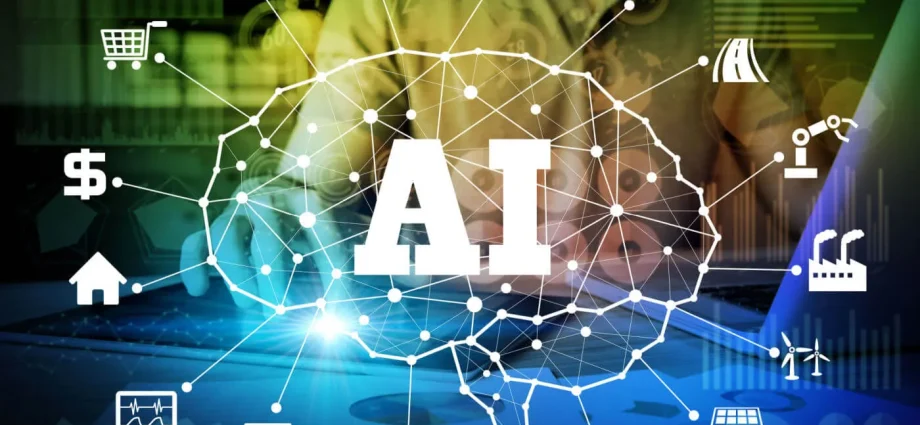
AI vs Software Developers. Will AI replace Software Developers in 2025.?
KARACHI ( Writer Ghufran Hasan )
The rapid advancement of Artificial Intelligence (AI) has sparked a heated debate across industries, and the tech world is no exception. One of the most pressing questions today is: Will AI replace software developers? To answer this, we need to explore the current state of AI, its capabilities, and the unique skills that human developers bring to the table.
The Rise of AI in Software Development
AI has made significant strides in recent years. Tools like GitHub Copilot, ChatGPT, and other AI-powered coding assistants have demonstrated the ability to generate code, debug errors, and even optimize existing codebases. These tools are trained on vast amounts of data, enabling them to assist developers in writing code faster and more efficiently. For instance, AI can now handle repetitive tasks, such as writing boilerplate code, fixing syntax errors, or generating basic front-end designs.

In 2025, AI is expected to become even more powerful and accessible. Open-source AI models are becoming cheaper, and companies like OpenAI, Meta, and Stability AI are pushing the boundaries of what AI can achieve. Some industry leaders, like the CEO (Prem Akkaraju) of Stability AI, have even suggested that in the near future, AI could effectively replace mid-level engineers, as it will be capable of writing code, debugging, and even managing software projects.
The Fear of Replacement
The fear of AI replacing software developers is not unfounded. AI can already perform many tasks that were once the exclusive domain of human developers. For example:
- Code Generation: AI can write code snippets, functions, and even entire modules based on natural language prompts.
- Debugging: AI can identify and fix errors in code, often faster than a human developer.
- Optimization: AI can suggest improvements to make code more efficient.
- Automation: AI can automate repetitive tasks, such as testing and deployment.
However, this doesn’t mean that AI will completely replace human developers. Instead, it will change the nature of their work.
What AI Can’t Do (Yet)
While AI is impressive, it has limitations. Here are some areas where human developers still hold the upper hand:
- Complex Problem-Solving: AI excels at solving problems it has seen before, but it struggles with novel, complex challenges that require creative thinking. Human developers can innovate and come up with unique solutions that AI cannot.
- End-to-End Development: AI cannot handle the entire software development lifecycle. Tasks like understanding client requirements, designing system architectures, and making strategic decisions still require human expertise.
- Hardware Design: AI is not yet capable of designing hardware or integrating software with hardware systems. This remains a human-dominated field.
- Ethical and Moral Decisions: AI lacks the ability to make ethical judgments or understand the broader societal impact of software. Human developers are essential for ensuring that technology is used responsibly.
- Learning New Frameworks: AI struggles with new or emerging technologies. For example, if a new programming language or framework is introduced, human developers will need to learn and adapt to it before AI can be trained effectively.
The Role of Human Developers in the AI Era
Rather than replacing developers, AI is more likely to augment their capabilities. Developers who embrace AI tools will be able to work more efficiently, focusing on higher-level tasks while leaving repetitive coding tasks to AI. Here’s how the role of developers is evolving:
- AI as a Tool: Developers will use AI to automate mundane tasks, allowing them to focus on more complex and creative aspects of software development.
- Upskilling: Developers will need to upskill and stay updated with the latest technologies. The demand will shift from basic coding skills to advanced problem-solving, system design, and AI integration.
- Collaboration with AI: Developers will act as guides for AI systems, ensuring that the code generated by AI is optimized, secure, and aligned with project goals.
- Innovation: Human developers will continue to drive innovation, creating new technologies and frameworks that AI can later learn from.
The Future of Software Development
The future of software development is not about humans versus AI; it’s about humans working alongside AI. Developers who adapt to this new reality will thrive, while those who resist change may find themselves left behind. Here are some key takeaways:
- AI Won’t Replace Developers Entirely: While AI will automate certain tasks, it cannot replace the creativity, critical thinking, and problem-solving skills of human developers.
- Upskilling is Essential: Developers must continuously learn and adapt to stay relevant. Skills like AI integration, system design, and advanced programming will be in high demand.
- AI is a Tool, Not a Threat: Developers who learn to use AI effectively will have a competitive edge in the job market.
- The Gap Between Beginners and Experts Will Widen: As AI takes over basic tasks, the demand for highly skilled developers will increase. Beginners will need to upskill quickly to remain competitive.
Conclusion:
The question of whether AI will replace software developers is complex. While AI will undoubtedly automate many aspects of software development, it is unlikely to replace human developers entirely. Instead, AI will serve as a powerful tool that enhances productivity and efficiency.
The key to thriving in this new era is adaptability. Developers who embrace AI, continuously upskill, and focus on high-value tasks will remain indispensable. As the tech industry evolves, the collaboration between humans and AI will define the future of software development.
So, will AI replace software developers? The answer is no—not entirely. But it will change the way developers work, and those who adapt will lead the way.

